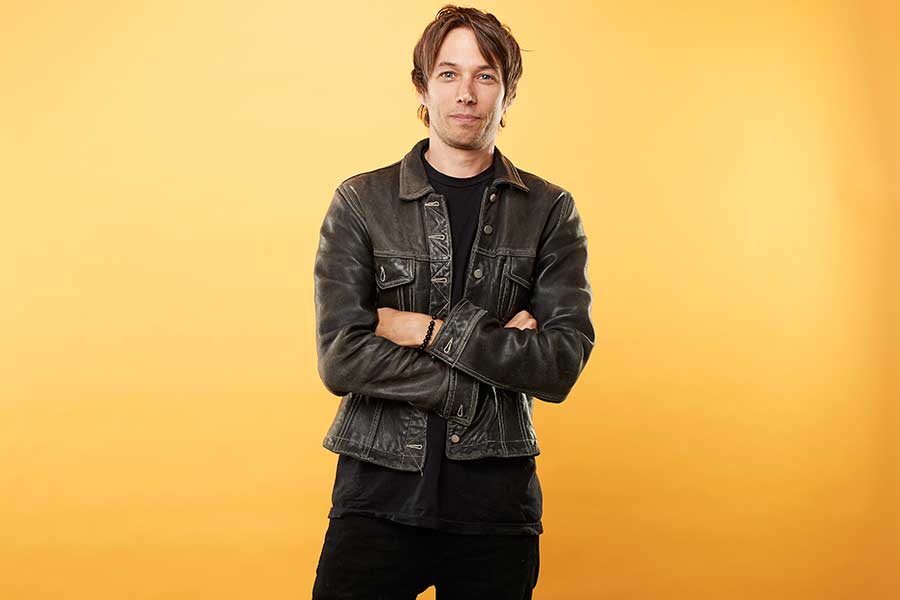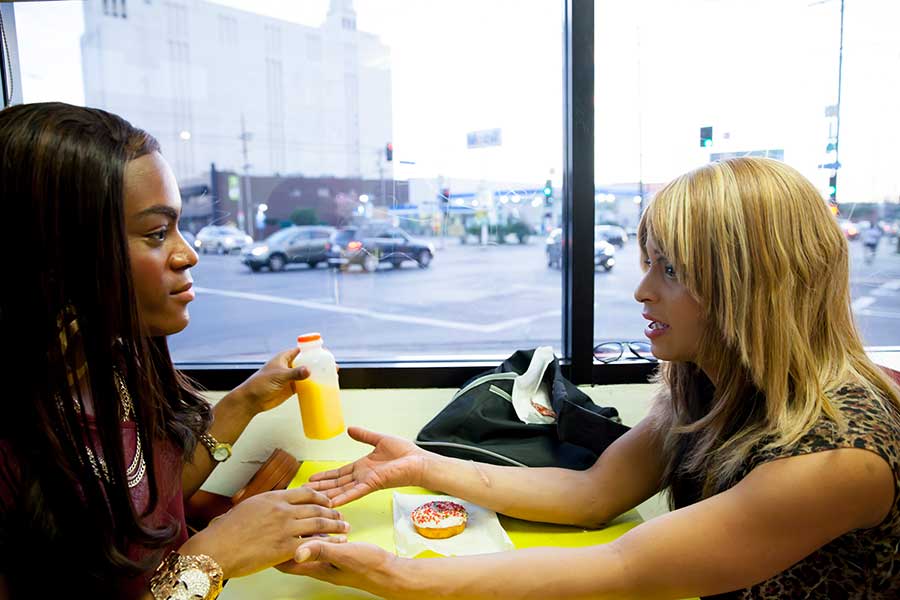
“Tangerine,” Sean Baker’s funky little comedy — shot entirely on an iPhone — is full of dram-ah as motor-mouthed transgender prostitute Sin-dee (Kitana Kiki Rodriguez) finds out from her BFF Alexandra (Mya Taylor) that her boyfriend Chester (James Ransome) has been cheating on her while she’s been in jail. As Sin-dee wanders around Los Angeles on Christmas Eve, trying to find Chester, Alexandra wants to focus on her performance that night. Meanwhile Razmik (Karren Karaguilian), a cab driver, seeks out both ladies for personal reasons. The film, which opens at Ritz Theaters July 24, thrives on its characters’ manic energy, but it is ingratiating because Sin-dee and Alexandra have tremendous heart.
In separate interviews, Baker and Taylor spoke via Skype about making “Tangerine.”
PGN: Sean, you tend to make films about marginalized, struggling and/or disenfranchised characters. Why do these kinds of stories appeal to you?
SB: I try to stay away from being too self-analytical. In all four of my films, I dealt with subject matter I didn’t know about. I think that those were small cultures I was interested in exploring. Each project began a different way and led to what it became. With “Tangerine,” it was a street corner in L.A. that was infamous as a chaotic red-light district. I had just explored sex work in my previous film, “Starlet.” I think I’m doing a trilogy. It was pure curiosity that led me there. The collaboration of befriending and getting the trust of the people from that world is how the stories were developed.
PGN: Mya, what input did you have with your character?
MT: Basically, the only thing that changed was the language. We brought our own personality into it. Everything else was Sean. I wanted the story to be as real as possible. Why are Alexandra and Sin-dee in the streets? They are trans. They don’t have family; they have been shunned away. That’s my story, Mya Taylor’s. It happened to me. It’s been six years since I have spoken to my family. I applied to 186 jobs, but didn’t get one. I didn’t want to turn to selling my body. Santa Monica and Highland is full of trans girls and gay guys who are forced to go out and sell drugs or sell ass. You have to use what you got to get what you want.
PGN: Sean, you shot the film entirely on an iPhone. What can you say about that decision and that process? It certainly adds an immediacy to the film.
SB: It began as a budgetary constraint, and it became more than that. At first it was because we didn’t have the money to shoot with other equipment. We said we’re going to embrace this and exploit the benefits from shooting on the phone, and suddenly the benefits revealed themselves to us. I knew we could be more clandestine, but I was much more mobile; the camera moves became more fluid. The most important thing was that these first-time actors had their inhibitions stripped away. Mya and Kiki were never intimidated by the “camera.”
PGN: How much of the film was improvised?
SB: For the girls’ dialogue, improvisation was encouraged. Chris [Bergoch, the co-writer] and I recorded every interview we did. We used the interviews as a guide for the dialogue. I gave the characters the script and told them, “If you don’t like it, put it into your words,” and that’s what they did. They sometimes said the script, or came to the table with their own wording. The only time we couldn’t deviate from the script was during the Armenian dialogue because I don’t know Armenian.
PGN: There’s a fantastic scene in a car wash, but Sean, you cut away in the middle of it, which both increases and interrupts the dramatic moment. Can you discuss that strategy?
SB: The car wash was a scene I wanted to shoot — a long take in the car wash. I didn’t know what I would do and when Mya told me that women take their clients into the car wash for a quickie, that’s what led us to write that scene. What I did with the music and the cuts were abrupt and jarring. I edit my own films. It’s done organically, following my instincts.
PGN: Mya, how do you see the characters and their situations?
MT: Before I started this movie, I told Sean not to make it sad, but to make it raw and real and funny and exciting. The story is sad as fuck. I don’t like a theater full of crying people. I’ve had a sad life. To keep myself going, you have to be fun. I made Alexandra like Mya Taylor. I wanted it to be happy. If you’re having a hard life, you have to make yourself happy. Life isn’t easy.

